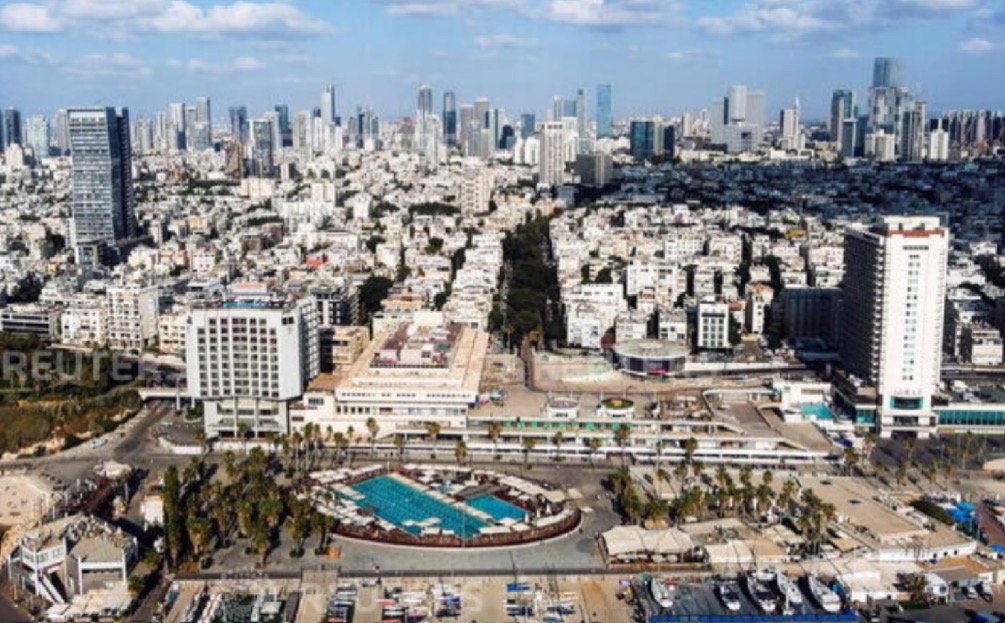Bible Verses in the Context of Israel as ‘The Promised Land’

SHARE
Israel is a country located in the Middle East and has a coastline along the Mediterranean Sea to the west. Jerusalem is the capital of Israel, and the country has a parliamentary democracy.
Israel holds significant importance in the Bible and is rooted in its historical and religious significance as the promised land and the land of the Israelites. Here are some key points regarding the connection between Israel and the Bible.

For Christians, Israel is often seen as having spiritual and symbolic significance. The Apostle Paul, in the New Testament, discusses the idea of a spiritual Israel, referring to believers in Christ, whether Jewish or Gentile.
The connection between Israel and the Bible is complex and multifaceted, involving historical, theological, and prophetic dimensions. It plays a central role in shaping the religious identity and beliefs of Judaism and Christianity.
For many, the Bible holds significant importance in understanding the complexities surrounding this region. There are numerous Bible verses that reference Israel, its history, and its significance in the context of religious narratives. Here are some key verses from both the Old and New Testaments:
The Promised Land:
Genesis 12:1-3 – “Now the Lord said to Abram, ‘Go from your country and your kindred and your father’s house to the land that I will show you. And I will make of you a great nation, and I will bless you and make your name great, so that you will be a blessing.'”

This verse is often cited to highlight the divine promise of land to Abraham and his descendants, a promise that is considered foundational in understanding the connection between the Jewish people and the land of Israel.
God’s Promise to Israel in Egypt:
Exodus 3:7-8- “Then the Lord said, ‘I have surely seen the affliction of my people who are in Egypt and have heard their cry because of their taskmasters. I know their sufferings, and I have come down to deliver them out of the hand of the Egyptians and to bring them up out of that land to a good and broad land, a land flowing with milk and honey.'”

This verse is a key passage in the Bible that captures a pivotal moment in the narrative of the Israelites’ liberation from slavery in Egypt. This passage is part of the account of Moses encountering God at the burning bush on Mount Horeb. It sets the stage for the unfolding story of God’s deliverance of the Israelites from bondage in Egypt, illustrating God’s compassion, awareness, and direct intervention in response to the suffering and cries of His people. This narrative is foundational to the broader themes of liberation and covenant in the biblical story.
Praying for Peace:
Psalm 122:6 – “Pray for the peace of Jerusalem! ‘May they be secure who love you!'”

This verse emphasizes the importance of praying for peace in Jerusalem, which holds spiritual and political significance for many religious groups. It reflects a universal desire for stability and harmony in a region often marked by conflict.
Pursuing Justice:
Micah 6:8 – “He has told you, O man, what is good; and what does the Lord require of you but to do justice, and to love kindness, and to walk humbly with your God?”

This verse encourages individuals to pursue justice and practice kindness, providing a moral compass for those involved in conflicts. It calls for a balanced and humble approach to addressing societal issues.
Turning Swords into Plowshares:
Isaiah 2:4 – “He shall judge between the nations, and shall decide disputes for many peoples; and they shall beat their swords into plowshares, and their spears into pruning hooks; nations shall not lift up swords against nations, nor shall they learn war anymore.”

This verse envisions a future where nations will turn away from conflict and embrace peace. It encourages a hopeful perspective and the belief in the possibility of reconciliation and harmony.
Peacemakers:
Matthew 5:9 (New International Version)- “Blessed are the peacemakers, for they will be called children of God.”

In this verse, the term “blessed” here refers to a state of happiness, fulfillment, or divine favor. Jesus is declaring that those who actively work towards peace are in a state of blessedness. “Peacemakers” are individuals who strive to bring about reconciliation, resolve problems and promote harmony in their relationships and communities.
The verse highlights the proactive role of peacemakers. It’s not merely about avoiding conflict or problem but actively working to bring about reconciliation and harmony.
The promise of being called “children of God” emphasizes the spiritual significance of peacemaking. It suggests that those who engage in the work of peace are aligned with God’s purposes and reflect His character.
In summary, Matthew 5:9 encourages followers of Jesus to actively engage in the pursuit of peace, understanding that such efforts align with the values of the Kingdom of God and bring about a sense of divine blessing and recognition.
Live At Peace with Everyone:
Romans 12:18 (New International Version)- “If it is possible, as far as it depends on you, live at peace with everyone.”

In this verse, Paul discusses the Christian ethic of love, humility, and service. He emphasizes the transformation of the mind and the Christian’s role in the larger community. The verse in question is part of a series of exhortations about how to relate to others.
The ultimate goal is to live in harmony with others. This doesn’t mean avoiding disagreements or compromising one’s principles, but rather seeking reconciliation, understanding, and promoting a spirit of peace in interpersonal relationships.
God’s Plans for Israel:
Jeremiah 29:11 – “For I know the plans I have for you, declares the Lord, plans for welfare and not for evil, to give you a future and a hope.”

In this verse, the prophet Jeremiah is conveying a message from God to the Israelites who were in exile in Babylon. The verse is often quoted and cherished by Christians as a source of comfort and hope.
This passage reflects God’s assurance to the Israelites that, despite their current difficult circumstances in exile, God has a positive and hopeful plan for their future. The plans mentioned are for their “welfare” or “prosperity,” not for harm. God’s intention is to provide a future filled with hope.
This verse is often cited to emphasize the idea that God has a purpose and plan for each individual’s life, and that even in times of difficulty or uncertainty, there is a divine plan for good. It’s a message of trust and confidence in God’s guidance and care for His people.
New Jerusalem:
Revelation 21:12- “It had a great, high wall, with twelve gates, and at the gates twelve angels, and on the gates the names of the twelve tribes of the sons of Israel were inscribed.”

This verse is from the last book of the Bible, the Book of Revelation. This particular passage describes the New Jerusalem, a symbol of the ultimate fulfillment of God’s promises and the dwelling place of the redeemed.
This description is part of a larger vision provided by the Apostle John in Revelation 21, where he envisions the New Jerusalem descending from heaven. The city is described as having a great, high wall, symbolizing security and separation from anything impure or evil. The twelve gates, each guarded by an angel, represent access points to the city.
The significance of the twelve gates with the names of the twelve tribes of Israel inscribed on them is often interpreted to symbolize the continuity and fulfillment of God’s covenant with the people of Israel. In the Old Testament, the twelve tribes of Israel were considered the chosen people of God. The use of their names on the gates suggests that the New Jerusalem includes and embraces the heritage and promises made to the people of Israel.
This imagery is part of the broader apocalyptic and symbolic language found in the Book of Revelation, which uses vivid and metaphorical language to convey spiritual truths about the culmination of God’s plan for humanity and the establishment of a new and perfect order.
Conclusion:
While these verses offer insight into the religious and historical aspects of Israel, it is essential to approach the topic with an understanding of the diverse perspectives involved.
The interpretation of these verses can vary widely, and dialogue that respects differing views is crucial for fostering understanding and promoting peace in the region.
*Cover Photo/Thumbnail Photo from Reuters
RELATED ARTICLES

Your Ideal Getaway at The Peninsula Paris

Progress WhatsUp Gold: Mastering Root Cause Analysis with Monitoring and Traffic Insights – Live Webinar









